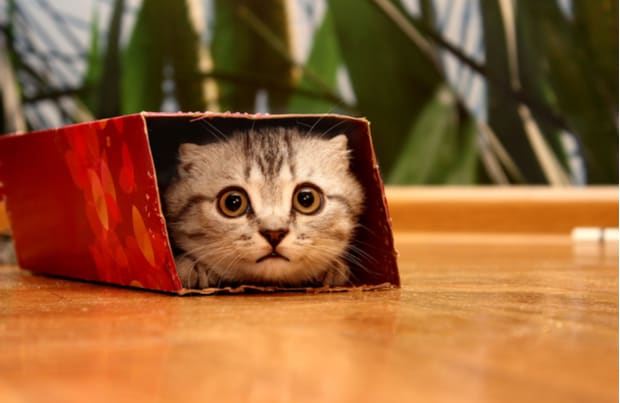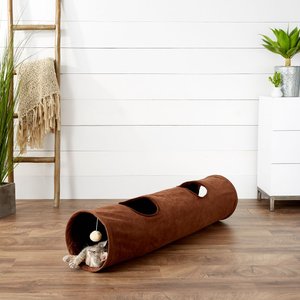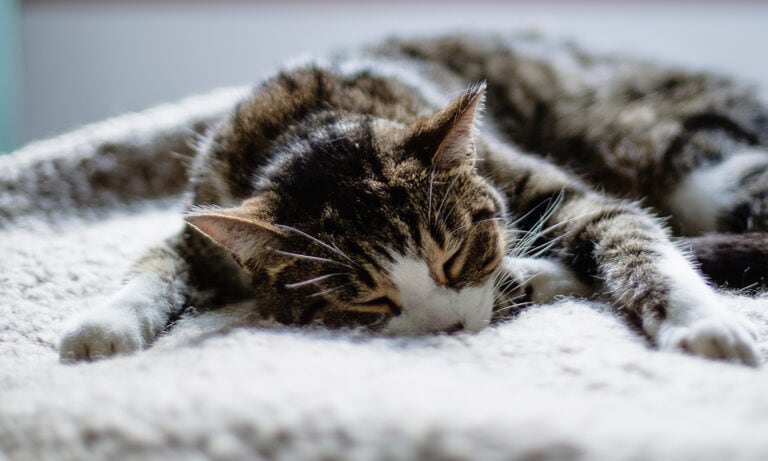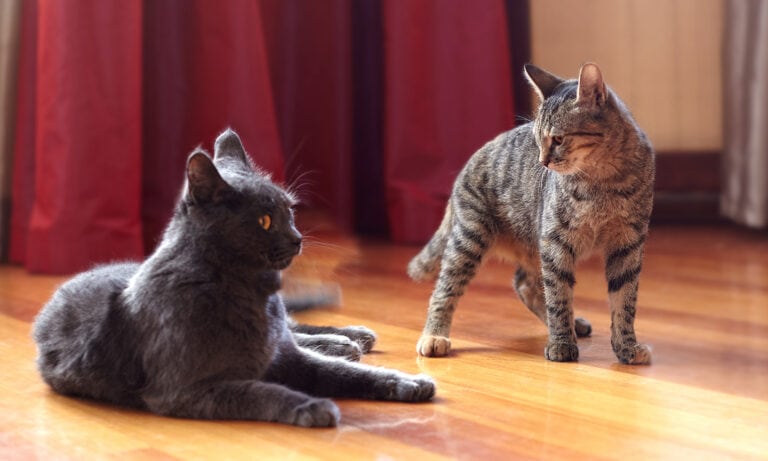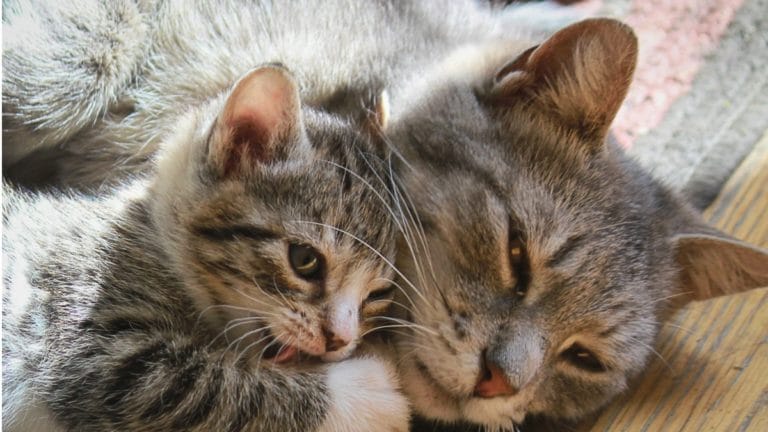As all cat owners know, our feline friends love hiding in small spaces. You’ve probably found your cat snuggled up in small spots ranging from sinks to drawers (even tissue boxes!), but what’s behind this behavior? Why do cats like to curl up in tiny spaces?
The Appeal of Small Spaces
The most convincing theory as to why cats look for small spaces to sleep or hide in is that, as a prey species, they’re often targeted by birds and other land carnivores, leaving them vulnerable and craving shelter, says Dr. Karen van Haaften, a clinical behavior resident at UC Davis Veterinary Medical Teaching Hospital.
Although cats are predators and hunt small animals, van Haaften says that cats feel comfortable when they’re out of sight and hide as a way to protect themselves.
Other theories as to why cats like to hide? Thermoregulation (being in tight spaces helps cats stay warm and reflects heat back at them) and the simple idea that, in the same way that getting a hug can make you feel better, cats might prefer touch, van Haaften says.
“There might something rewarding just about having that pressure surrounding their body,” says van Haaften.
She also says she thinks exploration might play a factor, too. Like children, cats like novelty and exploring new places.
How to Encourage Cats to Spend Time in Safe Places
“It’s important for cats to have hiding spaces. Cats do like to decompress [and] have some alone time but what I always encourage is [to] offer them several choices,” says Mikel Delgado, a certified cat behavior consultant.
When it comes to creating a safe, small place for your cat to curl up, start where your cat is naturally drawn to, assuming that the place isn’t dangerous.
“Get creative with what you already have,” says Delgado. If your cat likes to hide on a shelf, put a yoga mat there to encourage her to rest there. You could also try placing cat treats or feeding the cat in a specific area too.
Delgado also suggests buying a tepee, like P.L.A.Y.’s pet teepee, or clamshell-style bed so your cat can “burrow” inside and feel safer. If you cat prefers vertical spaces, she suggests buying a cat tree with cubbies built into it. Frisco’s 72-inch cat tree features two private cubbies for cats to curl up in for a snooze.
Exploration might play a factor, too. Like children, cats like novelty and exploring new places.
Delgado also loves cat crates. Try placing comfortable blankets—like fleece, velour or plain cotton towels—inside a cat carrier to make it a more inviting place. Delgado says that an added bonus with this small-space option is that your cat will learn to associate the carrier with positive experiences and it may make trips to the vet easier.
“What is most important is that the cat is most relaxed there. They’re not hiding in some dingy, dark corner of your house,” says Delgado.
How to Prevent Cats from Hiding in Unsafe Spaces
Cat proofing is key to preventing your cat from stowing away in unwanted or unsafe small spaces, Delgado says. Use Plexiglas or storage bins to prevent your cat from getting under the bed or in other undesired areas. Keep the door closed to rooms that you’d rather not have her enter, like a utility closet or a garage.
Delgado recommends not forcing your cat to stay in a certain space or punishing her if you find her hiding where you don’t want her to be. And while it’s important to encourage your cat to sleep where they are comfortable and safe, make sure your cat isn’t hiding out of fear or as a result of a medical issue.
“If you have a cat who spends a lot of time hiding in the closet [or] under the bed, that’s not necessarily a desirable situation for the cat, but it’s an indicator that they don’t feel safe,” says Delgado. “That’s a situation where I would recommend adding safe areas that are a little more social.”
Try placing a comfy blanket near a high-traffic area of your home (perhaps in the living room where you watch TV) to encourage your cat to rest in a place that’s comfortable and nearer to you. Additionally, if your cat is constantly hiding, talk to your veterinarian to rule out any medical issues and seek professional help to rule out a behavioral issue.

Teresa K. Traverse is a Phoenix-based writer, editor, traveler and dog mom to Chihuahuas Autumn and Rocket.
Share:
